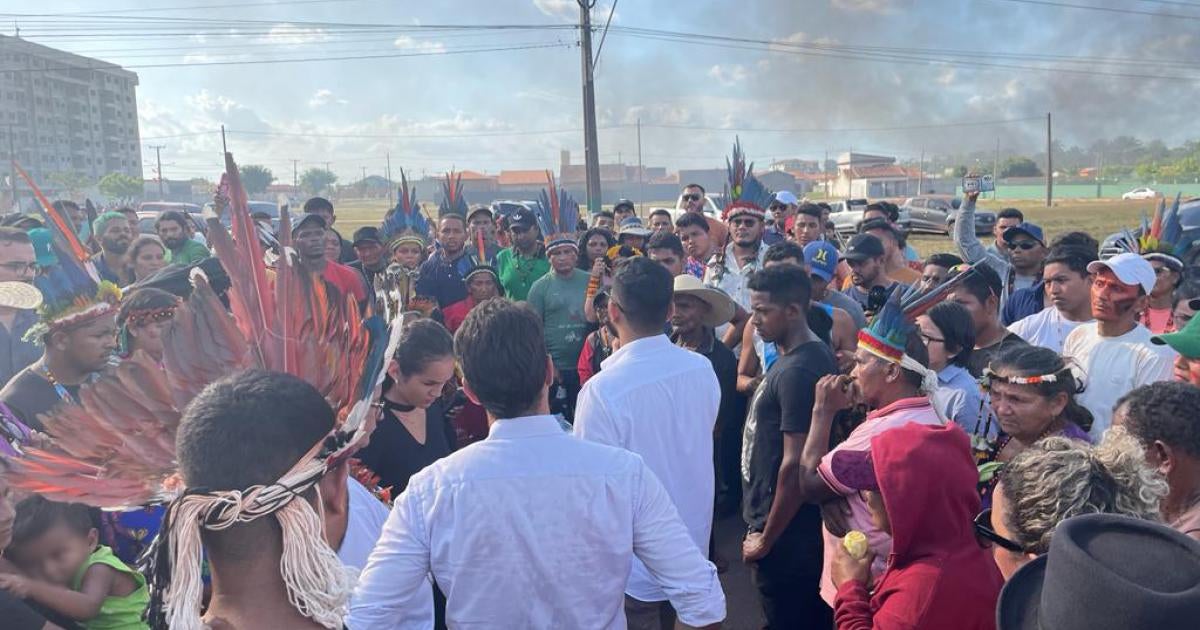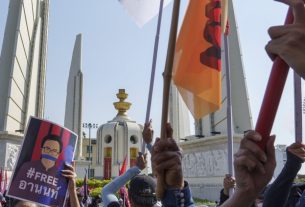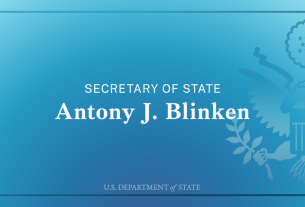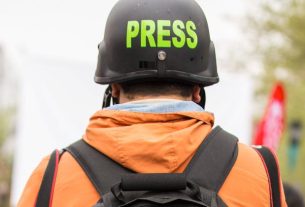Violence against Indigenous people in Brazil has marred the Amazon Summit, a high-level meeting of presidents of countries in the Amazon region aimed at improving protection of the Amazon rainforest. The violence is a stark reminder that there is no future for the Amazon without protecting the people living in, and dependent on, the rainforest.
On August 7, I visited Tomé-Açú, a town in Northeast Pará, together with other organizations concerned with escalating conflicts involving Indigenous communities and palm oil companies. Three days before, a 19-year-old Tembé man had been shot and seriously injured by a private security guard reported to work for a company producing palm oil, Brasil BioFuels (BBF).
A young man and two women had been shot earlier that day during a protest over the earlier shooting. One of the women was seriously injured and taken to a hospital. Company vehicles were set on fire and buildings reportedly damaged during the protest. The young man was detained by military police after hospital discharge and taken to a police station in Castanhal, more than 200 kilometers away.
BBF told Human Rights Watch that on August 7 a group of 30 people “set fire to dozens of tractors, machinery and company buildings” and its “private security team managed to contain the criminal action and protect the lives of workers who were on site.” The company claimed it was the latest in a series of such incidents.
I watched as Indigenous peoples, Afro-descendants known as quilombolas, and other local communities came together to demonstrate before the civil and military police stations in the Quatro Bocas district of Tomé Açu until the young man was released later that day. Protesters described how the communities claiming collective rights to lands where palm oil is being produced or reporting on environmental impacts from its production face intimidation and violence from security guards of companies in the region.
Brazil’s Federal Police and the Federal Prosecutor’s Office should investigate the circumstances of the shootings and the underlying land disputes. Authorities should protect local communities fearful of escalating violence and retaliation.
Last week, in a call to governments attending the summit, Human Rights Watch highlighted the protection of land and forest defenders should be a central part of their commitment to protect the Amazon. Conflicts in the Amazon are certain to continue unless federal and state governments tackle the underlying land conflicts giving rise to acts of intimidation and violence.



